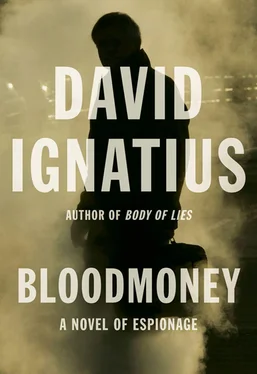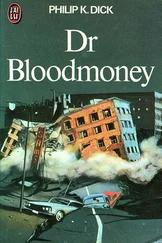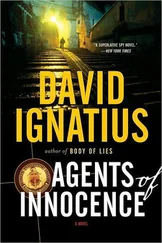David Ignatius - Bloodmoney
Здесь есть возможность читать онлайн «David Ignatius - Bloodmoney» весь текст электронной книги совершенно бесплатно (целиком полную версию без сокращений). В некоторых случаях можно слушать аудио, скачать через торрент в формате fb2 и присутствует краткое содержание. Жанр: Шпионский детектив, на английском языке. Описание произведения, (предисловие) а так же отзывы посетителей доступны на портале библиотеки ЛибКат.
- Название:Bloodmoney
- Автор:
- Жанр:
- Год:неизвестен
- ISBN:нет данных
- Рейтинг книги:4 / 5. Голосов: 1
-
Избранное:Добавить в избранное
- Отзывы:
-
Ваша оценка:
- 80
- 1
- 2
- 3
- 4
- 5
Bloodmoney: краткое содержание, описание и аннотация
Предлагаем к чтению аннотацию, описание, краткое содержание или предисловие (зависит от того, что написал сам автор книги «Bloodmoney»). Если вы не нашли необходимую информацию о книге — напишите в комментариях, мы постараемся отыскать её.
Bloodmoney — читать онлайн бесплатно полную книгу (весь текст) целиком
Ниже представлен текст книги, разбитый по страницам. Система сохранения места последней прочитанной страницы, позволяет с удобством читать онлайн бесплатно книгу «Bloodmoney», без необходимости каждый раз заново искать на чём Вы остановились. Поставьте закладку, и сможете в любой момент перейти на страницу, на которой закончили чтение.
Интервал:
Закладка:
Perkins’s stage whisper had grown so loud the guard or anyone else listening could surely hear it. But he didn’t care.
Tarullo got up to leave. He gave Perkins a kiss on both cheeks, Italian-style, and the heavy body lumbered out the door.
Perkins leaned back in his chair, his hands clasped behind his head. He put his feet up on the wooden table for a moment, savoring his act of defiance, but the guard pushed them away and ordered Perkins back to his cell.
40
The Eurostar arrivals hall at St. Pancras station was thick with well-dressed young men and women, their computer bags slung over their shoulders and rolling their luggage behind them. There was the faint sound of a thousand tiny wheels clicking across the floor as they busily sped off to their London destinations. They were bound for Euro-Britain, a nation of espresso bars and gourmet sandwich shops that seemed barely connected to the old country of dingy corridors and cigarette butts.
Sophie Marx was traveling on a new diplomatic passport, supplied by the embassy in Brussels, so she avoided the queue at Immigration. She took a black taxi to the Dorchester Hotel, where she had left her luggage in storage when she had decamped suddenly for Islamabad a week before. The doorman tipped his black top hat, and the concierge in his morning coat welcomed her “back home,” as if she’d been off sporting on the Cote d’Azur these past few days. Nothing in her appearance gave her away; she wore a pair of well-tailored slacks and her snug leather jacket and she did look, at a glance, like someone who belonged on a yacht rather than in a safe house.
Marx asked the man at the front desk for a simple room that would fit her new budget, but she was family now, and they gave her a big room with a four-poster double bed and windows that overlooked the park.
She rang Thomas Perkins’s numbers again when she got upstairs. She had been calling him for two days without success, at his office, home and cell numbers. It was evident that something bad had happened to him but she didn’t yet know what, and she blamed herself.
She unpacked her things, took a long shower and collapsed on the bed. She wanted to hide for a while, from the people who were pursuing her and from thoughts about the people she had placed in danger. She unhooked the chintz curtains that surrounded the bed and let them fall, so that she was enclosed in a doll’s house of floral print fabric and down pillows. She hugged a pillow tight against her chest, the way she had as a girl in her first weeks at boarding school, fighting the loneliness of separation from her crazy parents. Sleep came quickly; she was awakened ninety minutes later by the insistent ring of her cellular phone.
Marx fumbled for the handset, uncertain where she was in the dark of the bed. It was odd to hear the ring at all; so few people knew how to reach her. She looked at the number of the incoming caller; it was a London mobile phone she didn’t recognize, and she thought at first that it might be Thomas Perkins.
“Hello,” she answered. “Who is this?”
The answer was the clipped, emphatic and all too familiar voice of Jeffrey Gertz.
“It’s your boss. Or should I say, your former boss. I gather you’ve gone over to the parent company.”
“I don’t want to talk to you,” she said. “You’re hazardous to my health.”
“I need to see you. We have to talk.”
“Wrong. We have nothing to talk about. You are a menace. I mean it. Don’t call again. Goodbye.”
She pressed the red button on the phone and ended the call. The phone rang again, twice, from the same number, and she let it roll over to voice mail both times. Ten minutes later, there was a call from a “private number,” not otherwise identified. She ignored that one, too.
Marx put on her jeans and black leather and walked the half dozen blocks across Mayfair to the handsome building that housed Alphabet Capital. It was a Friday afternoon and the pubs along the way were already crowded with merry-makers, spilling onto the sidewalks with their pints of beer and their wine coolers. As she threaded the crowds, several men offered to buy her a round.
The police had departed Perkins’s building. When the elevator door opened at the top floor, the Alphabet offices looked depopulated, with perhaps a third of the normal contingent on the trading floor. The boisterous feeling she remembered was gone, too; it had the dazed and enervated look of a business in liquidation. Marx walked toward Perkins’s office. The door was shut and the windows that looked out on the trading floor were curtained.
Perkins’s secretary, Mona, was sitting alone at what had been a bank of three assistants. Her eyes were red from days of sleeplessness and crying. She saw Marx approach and pulled back at first. The American woman was part of the problem that had capsized her boss and his firm.
“Where have you been?” she asked Marx. “You missed all the, what, action, but that’s not quite the right word. More like a typhoon.”
“I was away. What happened? It’s so quiet. It looks like they just had a funeral here.”
“Might as well have been. There police were here all week. They just left this morning. Shut the place down, you might say. Took whatever they liked: half the files, and the proprietor, too.”
“Where’s Mr. Perkins? I’ve been trying to reach him for two days. He doesn’t answer my calls and he doesn’t respond to messages.”
“Don’t you know what happened, miss?”
“No, Mona, I have no idea. I told you, I’ve been away. Where is he?”
“He’s in prison, ma’am. They took him off two days ago. He’s in Pentonville now, or so they say. Mr. Tarullo has been up to visit. He’s the only one.”
“I need to see him. It’s really important. Can you contact him for me?”
The secretary shook her head sorrowfully. Her life had been devoted to making arrangements for people to see Thomas Perkins, and now she was useless.
“I told you, he’s in prison. No phone, no mobile, no visitors that aren’t on the list. You have to apply to the warden. And he isn’t seeing most people, I should warn you, only his attorneys. He thinks it’s better that way, or at least that’s what Mr. Tarullo told us.”
Marx got Tarullo’s number from the secretary and called him. The American lawyer sounded harassed and grumpy. Marx gave him her name and said she needed to visit Perkins in prison, but Tarullo sounded uninterested. Perkins, in his desire to protect her, had never mentioned her name to his lawyer.
Tarullo said he was preparing to leave for the States that night on the last British Airways flight, to “shake the tree,” as he put it.
“Who the hell are you, anyway?” he asked. “I never heard of you. Who do you work for?”
Marx thought a minute. She didn’t have time to play games and neither, evidently, did Tarullo.
“I work for the U.S. government. That’s all I want to say on the phone. But I’m a friend of Mr. Perkins’s, for real, and I suspect he doesn’t have too many right now. I need to see him.”
Now Tarullo was a little more interested. The busy lawyer’s go-away tone changed to something more solicitous.
“You work for a part of the government that doesn’t like to say that it’s the government. Am I right?”
“Yes. ‘I could tell you more but then I’d have to…’ You know the line. Can we talk?”
Tarullo decided to take a flyer. He had to leave for the airport soon, and he needed to know if this call was worth his time.
“Let me ask you something, whoever you are. Do you know anything about someone named Anthony Cronin?”
“Yes. I know all about him.”
“You’re shitting me. For real?”
Читать дальшеИнтервал:
Закладка:
Похожие книги на «Bloodmoney»
Представляем Вашему вниманию похожие книги на «Bloodmoney» списком для выбора. Мы отобрали схожую по названию и смыслу литературу в надежде предоставить читателям больше вариантов отыскать новые, интересные, ещё непрочитанные произведения.
Обсуждение, отзывы о книге «Bloodmoney» и просто собственные мнения читателей. Оставьте ваши комментарии, напишите, что Вы думаете о произведении, его смысле или главных героях. Укажите что конкретно понравилось, а что нет, и почему Вы так считаете.












